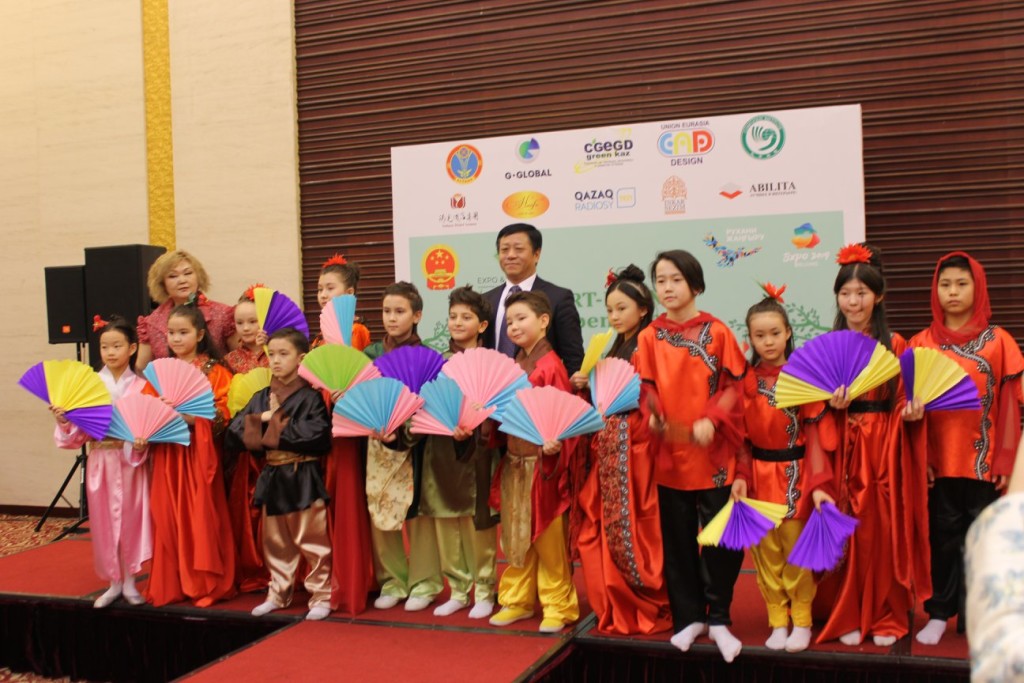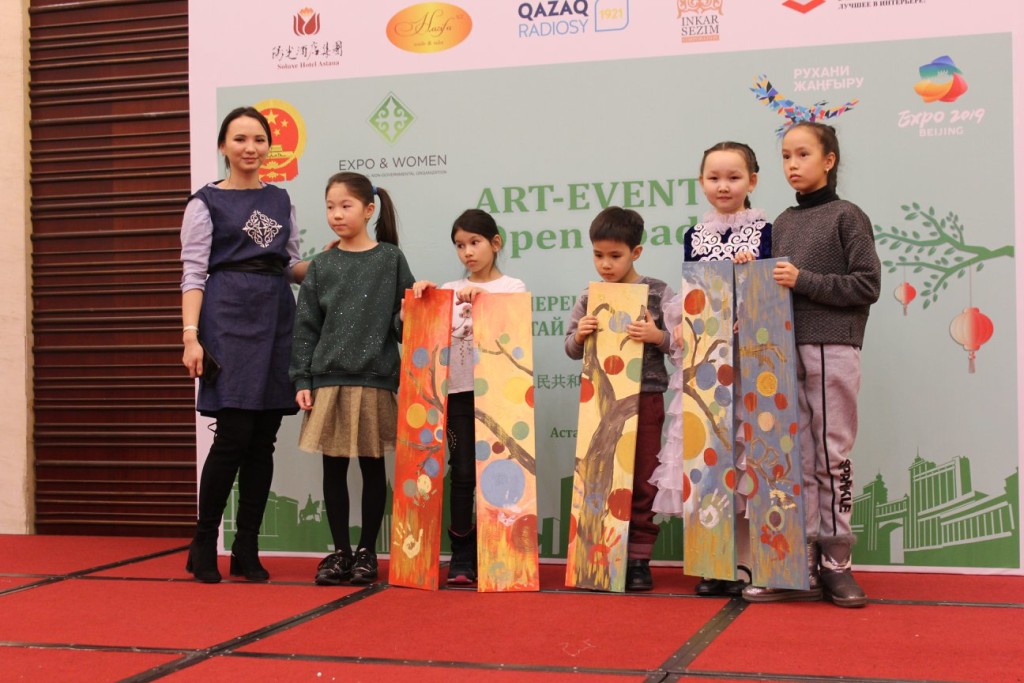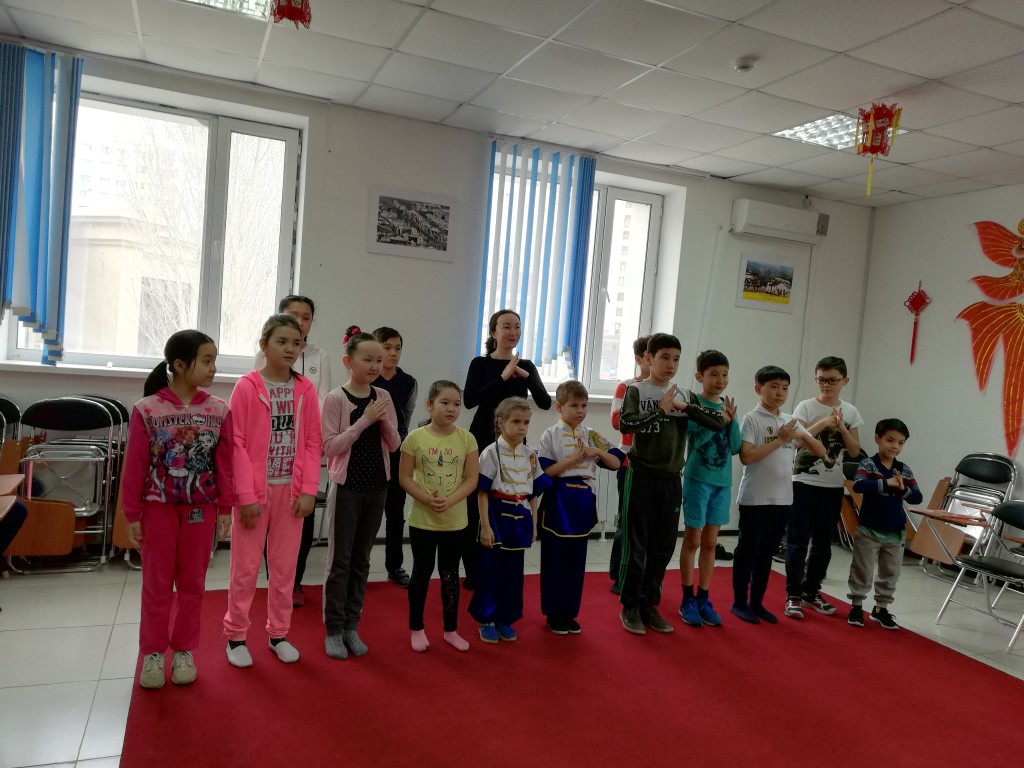ASTANA – Astana’s Confucius Institute will present Capitals of the Silk Road, a photo exhibition July 2-3 in cooperation with the international organisation Expo & Women. The event is part of the Global Silk Road Forum and Silk Road Mayors’ Forum.
Institute head Saule Koshanova spoke about the exhibit, the organisation’s activities and new approaches to learning Chinese in an interview with The Astana Times.
“The application is open until June 15. The exhibition’s theme is a city through the lens of the photographer,” she said.
The Confucius Institute office was established at Lev Gumilyov Eurasian National University in 2006 and Koshanova has been at the forefront since its inception. She was recently appointed by the Beijing EXPO 2019 committee to lead the Expo & Women presidium.
“We are proud of the academic advancements achieved by our students. They take part in Chinese language and Sinology competitions and enter the top Chinese universities. Many of them are pursuing careers in foreign services, government departments and Kazakh-Chinese companies,” she said.
The institute conducts scientific research, develops educational programmes, organises exhibits, Olympiads, lectures by foreign and local scientists-sinologists and winter and summer internships and provides consultations and seminars. It is also the first school in Kazakhstan with a Chinese Proficiency Test (HSK) license.
“The advanced professional training is of great importance. The teachers study international experiences and participate in international conferences,” she said.
As a scholar, Koshanova promotes the country’s academic achievements. She was invited to deliver a series of lectures on modern Kazakhstan and Kazakh-Chinese relations at the Shanghai Cooperation Organisation (SCO) Public Diplomacy Institute and became the only foreign researcher on its board of directors.
“We organised a number of events dedicated to EXPO 2017 and the 10th anniversary of the institute. The Kazakhstan-China: Trust, Partnership, Stability conference held Dec. 22 became a major event. Kazakh-Chinese experts discussed the issues related to education, culture, energy and draft strategies for the economic belt of the Silk Road. The participants stressed that the institute has become a bridge of friendship between the academic structures of the two countries,” she noted.
The institute is part of a global network of cultural and educational centres headquartered in Beijing and cooperates with Chinese universities and research organisations.
“The Xian Foreign Studies University is our main partner in the implementation of scholarship programmes and language internships. Eurasian National University signed memorandums of cooperation with China’s leading universities at the initiative and with the assistance of the institute. We reached an agreement on a number of research projects with Peking University. We have a two-diploma education programme with Shanghai University,” said Koshanova.
More than 3,500 students of various ages have participated in the language learning courses, with more than 150 receiving grants from the institute’s head office to continue their studies.
“Our team includes highly qualified teachers from the Xian Foreign Studies University – three of them are candidates of science and five are graduate students. We offer modules on the history and culture of China, calligraphy and wushu. We also have choreographic courses, speaking, students and film clubs,” she said.
The centre offers more than 6,500 books, teaching aids, video and audio books.
“The Embassy of China to Kazakhstan greatly supports us in event organisation. We also work as a co-organiser of cultural and educational events initiated by the embassy,” she added.
The Open Road art event, held this year with the support of the Chinese Embassy and Expo & Women, was dedicated to the Spring Festival in China, Nauryz celebrations and Beijing EXPO 2019.
“It was aimed at preserving cultural diversity and promoting future energy. Artists from Armenia, Iran and Moldova also took part in the exhibition titled Traditions and the Present of the Great Silk Road,” she said.
Koshanova is especially proud of launching the Learn and Play, a unique programme for children aged 8-12.
“We were able to receive only 15 children. In autumn, we plan to open several groups of five-seven children each. Children have the opportunity to start learning wushu. After a one-hour programme in Chinese, the second part of the lesson is the smart sports. We decided that it is important to pay special attention to physical education,” she said.
Kazakh Wushu Kung Fu Federation head coach Vadim Traize conducts the wushu classes, which parents can attend.
“We receive positive feedback from the participants and we notice the sincere interest of the children. Feedback is important for us and we are open to dialogue. We plan to start Chinese business and weekend Chinese courses soon. A training seminar for teachers with the participation of philologists and linguists from China is scheduled in May-June. At the end of the course, the international conference will be held to highlight the latest developments in Chinese language teaching. Our team will present the Chinese online module,” said Koshanova.



